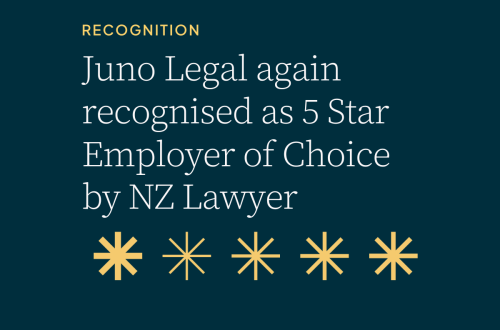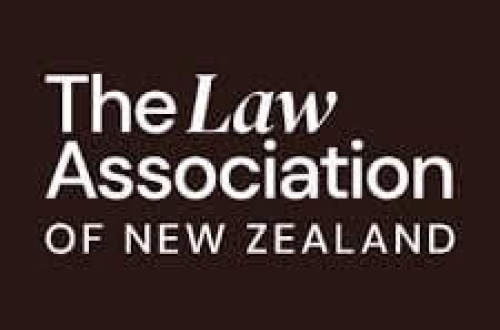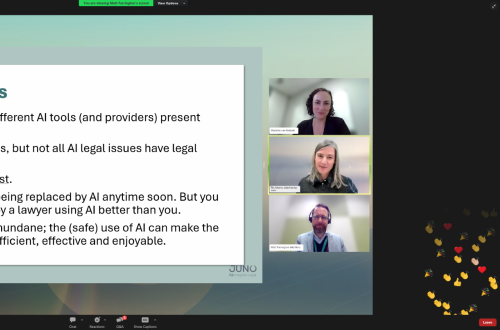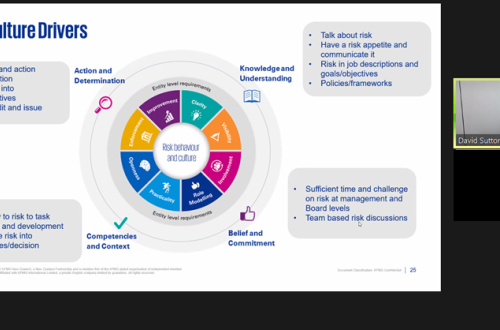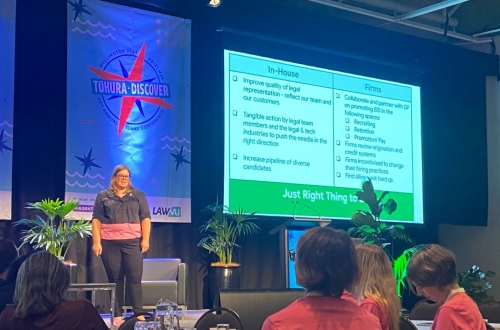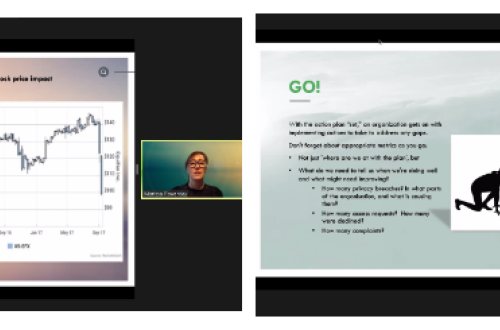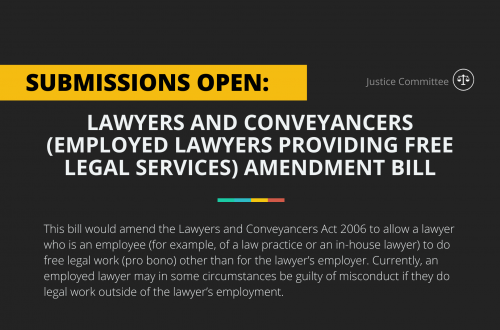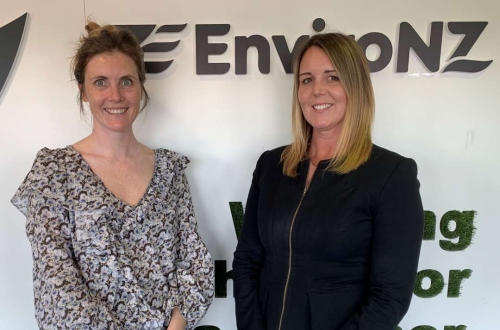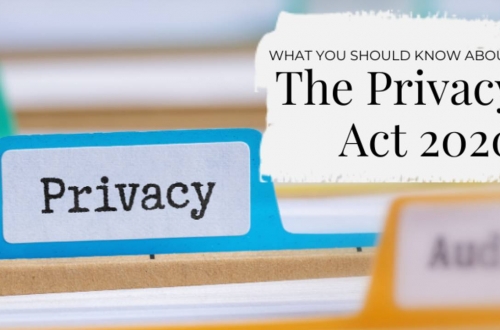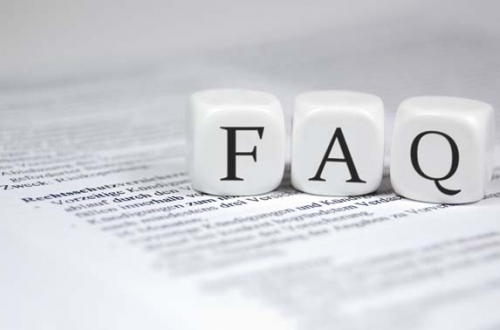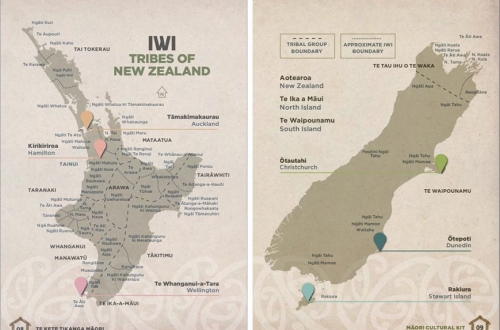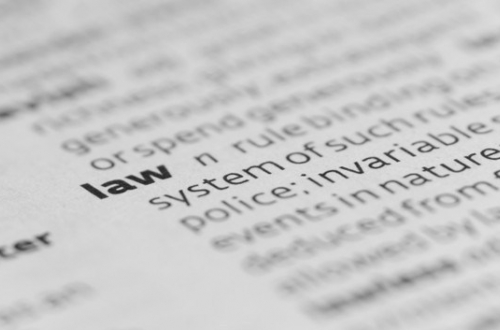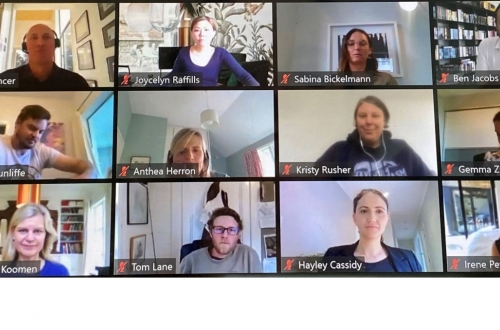Clause bank
Juno's Clause bank includes a collection of commonly used legal clauses. We encourage in-house counsel to use and customise it for your business's requirements.
The documents are specifically tailored to the needs of in-house legal teams and we’ve endeavoured to draft them in a plain language style that strikes a reasonable middle ground between parties.
If you are an in-house lawyer or working in a contract management or similar capacity in-house, they are free to use, adapt and share. Clauses are drafted and reviewed by Juno Legal lawyers except where otherwise stated and contributed by clients and members of the in-house legal community.
For a complete Word file of our Clause Bank, please contact us at [email protected].
General
62 items-
Amendments in writing
Last updated 29-11-2024Amendments. Any change to this Agreement may only be made where both parties agree in writing.
-
Approval & Consent
Last updated 08-07-2025Approval & Consent. Unless this Agreement states otherwise, a party may give or withhold an approval or consent in that party’s absolute discretion and without the need for explanation.
-
Assignment
Last updated 29-11-2024No assignment. A party may only assign its rights under this Agreement with the written consent of the other party. Such consent not to be unreasonably withheld. [A change in ownership of either party resulting in a change of effective control of that party is deemed to be an assignment under this clause.]
-
Change in Control
Last updated 08-07-2025Any Change in Control of a party [and its "holding company" as defined by the Companies Act 1993], will be deemed an assignment for the purposes of this Agreement and will be subject to the assignment terms set out in clause [x].
For the purposes of this Agreement, a “Change of Control” of a company shall mean the change in any of the following:
- ownership of more than one half of the issued shares of the company;
- power to appoint or remove all the directors of the company, or such number of directors that together hold the majority of the voting rights for the company;
- control of the majority voting rights that can be exercised at a meeting of the company's Board; or
- control over the affairs and policies of the company.
-
Conditions Precedent
Last updated 08-07-2025Conditions Precedent. Completion of the contract is conditional on: [list conditions here] (together the "Conditions Precedent").
The Conditions Precedent are for the benefit of [Party Y].
[Party X] must use its [best/reasonable] endeavours to ensure that the Conditions Precedent are met. It must notify [Party Y] within [x] working days if it any Condition Precedent cannot be met.
-
Confidential Information
Last updated 08-07-2025Confidential Information. Each party agrees to keep confidential the terms of this [Agreement] and the other party's Confidential Information.
A party may only disclose Confidential Information where:- The other party has consented to the disclosure;
- The disclosure is to an employee, contractor, agent or adviser of the disclosing party and is done to comply with this [Agreement] or otherwise provide advice in relation to this [Agreement];
- The disclosure is required by law or regulation, a court order, applicable stock exchnage rules, or governmental directive; or
- The Confidential Information is otherwise in the public domain.
Each party must ensure that its employees, contractors and/or agents do not breach this clause.
This obligations contained in this clause will survive the termination or expiry of this [Agreement] for a period of [x] years. -
Confidentiality, definition
Last updated 29-11-2024Meaning of Confidential Information. In this Agreement, Confidential Information means all information (whether written, verbal or electronic) that is disclosed by one party (the Owner) to another party (the Recipient). This includes, without limitation:
(a) the identities of the parties to this Agreement;
(b) the operations and strategic plans of the Owner;
(c) the fact that Confidential Information is being made available to the Recipient;
(d) the nature of the Confidential Information;
(e) derivative works that include the Confidential Information ;and(f) any information that by its nature is reasonably understood by the Recipient to be proprietary, sensitive or confidential.
-
Confidentiality, return, destruction and retention
Last updated 29-11-2024Return or destruction. If the Owner requests, the Recipient must return or destroy all copies of the Confidential Information that it holds or controls.
Backups and archive. The Recipient may keep copies of the Confidential Information that are retained in accordance with the Recipient’s ordinary backup, archive procedures, or where required by law, provided that such copies are not readily accessible in the ordinary course of business. This clause [x] takes precedence over clause [y] (return or destruction). Retention of an archival copy may be maintained by the Recipient for [7] years post receipt of the Confidential Information.
-
Consumer Guarantees
Last updated 29-11-2024Consumer Guarantees Act 1993. The parties acknowledge that the Services [and Deliverables] to be provided under this Agreement are not of a kind ordinarily acquired for personal, domestic, or household use or consumption and the Consumer Guarantees Act applies to provision of the Deliverables under this Agreement.
-
Counterparts
Last updated 29-11-2024Counterparts. This Agreement may be executed in counterparts and each counterpart together will constitute one instrument. Either party may enter into this Agreement by signing a counterpart copy and sending it to the other party, including by email, by hard copy [or digital signing tool].
-
Deeds
Last updated 29-11-2024Delivery. For the purposes of section 9 of the Property Law Act 2007, and without limiting any other mode of delivery, this Deed will be delivered by each party immediately on the earlier of:
(a) physical delivery of an original of this Deed, executed by the relevant party, into the custody of the other party or the other party’s solicitors; or
(b) transmission by the relevant party or its solicitors (or any other person authorised in writing by the relevant party) of a photocopied or scanned copy of an original of this Deed, executed by the relevant party, to the other party or the other party’s solicitors.
-
Dispute Resolution - green clause
Last updated 29-11-2024Green clause for Dispute Resolution.
(a) In the event of any dispute arising out of, or in any way connected to, this Agreement:
i. all notices and communications between the parties will be sent by electronic means;
ii. the parties will use reasonable endeavors to ensure that meetings and dispute resolution processes relating to the dispute will, where reasonably practicable, be held virtually;
iii. subject to paragraph (iv) below, where reasonably practicable, electronic documents will be used in negotiations, meetings and dispute resolution processes in preference to printed documents; and
iv. Electronic Bundles will be used to prepare for, and during, meetings or hearings.
(b) The obligation under paragraph (a) above is subject to any party’s obligation to the contrary found in any relevant legislation, rules, court or tribunal order, procedural rule, practice direction, protocol or court guide, any direction or request from the adjudicator of the dispute, or any applicable law.
(c) Reasonable endeavors to:
i. use [FSC-certified] [recycled paper], non-solvent-based printer ink and cardboard (non-plastic) tabs, dividers and folders; and
ii. subject to any legal obligations to retain copies and any professional confidentiality commitments, dispose of the bundle through secure recycling.
-
Dispute resolution, arbitration (Resolution Institute)
Last updated 14-05-2024Any dispute or difference whatsoever arising out of or in connection with this contract shall be submitted to arbitration in accordance with, and subject to, Resolution Institute Arbitration Rules.
Unless the parties agree upon an arbitrator, either party may request a nomination from the Chair of Resolution Institute.
-
Dispute resolution, arbitration after mediation (Resolution Institute)
Last updated 16-05-2024The parties may choose to refer the dispute to mediation.
If the dispute or difference is not settled within 30 days of referral to mediation (unless such period is extended by agreement of the parties), it shall be and is hereby submitted to arbitration in accordance with, and subject to, Resolution Institute Arbitration Rules. Notwithstanding the existence of a dispute or difference each party shall continue to perform the Agreement.
Unless the parties agree upon an arbitrator, either party may request a nomination from the Chair of Resolution Institute.
Urgent Interlocutory Relief.Nothing in this clause prevents either party from commencing court proceedings relating to any dispute arising from this Agreement at any time where that party seeks urgent interlocutory relief.
-
Dispute resolution, conciliation (Resolution Institute)
Last updated 16-05-2024Any dispute or difference whatsoever arising out of or in connection with this contract shall be submitted.
Any dispute or difference whatsoever arising out of or in connection with this contract shall be submitted to an expert in accordance with, and subject to, Resolution Institute Expert Determination Rules.
Unless the parties agree upon an expert, either party may request a nomination from the Chair of Resolution Institute.
Urgent Interlocutory Relief.Nothing in this clause prevents either party from commencing court proceedings relating to any dispute arising from this Agreement at any time where that party seeks urgent interlocutory relief.
-
Dispute resolution, industry/consumer contracts (Resolution Institute)
Last updated 29-11-2024Any dispute under, or arising out of, this contract shall be referred to Resolution Institute, for resolution under the Rules of the (Trade Body or Association) Consumer/Industry Dispute Resolution Scheme. Each case will first be referred to a Conciliator appointed by Resolution Institute unless either party wishes to proceed directly to arbitration. If the conciliation is not satisfactorily concluded within six weeks from commencement, or if the parties want to proceed directly to arbitration, Resolution Institute will appoint an Arbitrator who will make a final and binding award.
Urgent Interlocutory Relief.Nothing in this clause prevents either party from commencing court proceedings relating to any dispute arising from this Agreement at any time where that party seeks urgent interlocutory relief.
-
Dispute resolution, international arbitration
Last updated 29-11-2024Any dispute or difference whatsoever arising out of or in connection with this contract shall be and is hereby submitted to arbitration in accordance with, and subject to, the UNCITRAL Arbitration Rules. The designating and appointing authority shall be the Resolution Institute. There shall be one arbitrator, the language of the arbitration shall be English, the place of the arbitration shall be (nominate the Australian city in which you wish the arbitration to occur, note that New Zealand isn’t an available location).
The parties may designate different rules to the UNCITRAL Arbitration Rules.
The parties may provide for 3 arbitrators.
The parties may designate a language other than English.
Urgent Interlocutory Relief.Nothing in this clause prevents either party from commencing court proceedings relating to any dispute arising from this Agreement at any time where that party seeks urgent interlocutory relief.
-
Dispute resolution, mediation (AMINZ)
Last updated 16-05-2024Dispute resolution. The parties agree that they will use good faith efforts to resolve any dispute regarding this Agreement [or the Services or Deliverables] by negotiation. If a dispute cannot be resolved by negotiation, either party can refer the dispute to mediation in accordance with the under Arbitrators’ and Mediators’ Institute of New Zealand Mediation Protocol. The mediator will be selected by the President of the Arbitrators’ and Mediators’ Institute of New Zealand unless both parties agree on another mediator.
Urgent Interlocutory Relief.Nothing in this clause prevents either party from commencing court proceedings relating to any dispute arising from this Agreement at any time where that party seeks urgent interlocutory relief.
-
Dispute resolution, mediation (Resolution Institute)
Last updated 29-11-2024No party to this agreement shall commence any court or arbitration proceedings relating to a dispute arising out of or related to this agreement, unless that party has first complied with this clause.
The parties agree to mediate any dispute in terms of the Resolution Institute standard Mediation Agreement (NZ version).
The mediation shall be conducted by a mediator and at a fee agreed by the parties. Failing agreement between the parties, the mediator shall be selected, by the Chair for the time being of Resolution Institute.
Duration of mediation. The mediation will be terminated by:
(a) the signing of a settlement agreement by the parties;
(b) notice to the parties by the mediator, after consultation with the parties, to the effect that further efforts at mediation are no longer justified;
(c) notice by one or more of the parties to the mediator to the effect that further efforts at mediation are no longer justified; or
(d) the expiry of [60] working days from the mediator's appointment, unless the parties consent to an extension of this period.
Urgent Interlocutory Relief.Nothing in this clause prevents either party from commencing court proceedings relating to any dispute arising from this Agreement at any time where that party seeks urgent interlocutory relief.
-
Dispute Resolution, opening clauses
Last updated 29-11-2024Informal resolution. In the event of a dispute between the parties in relation to this Agreement the parties will first seek to resolve the dispute informally between their authorised representatives. If the parties are unable to resolve the dispute between their authorised representatives within 5 working days, then they will escalate the dispute to their [CEO, Chair] of their organisations for resolution within 10 working days.
If the [CEO/Chairs] are unable to resolve the dispute within 10 working days, they will refer the dispute to [mediation/arbitration].
-
Entire Agreement
Last updated 08-07-2025Entire Agreement. This [Agreement] (including any amendments and variations) records everything agreed between the parties relating to the [services/goods/deliverables/subject matter of this [Agreement]]. It replaces any previous communications, negotiations, arrangements or agreements that the parties had with each other relating to [services etc] before this Agreement was signed, whether they were verbal or in writing.
-
Execution block (Company)
Last updated 09-07-2025Execution block (Company).
Executed as an [agreement/deed] by:
[Company Name]:
.................................. ..................................
Signature of director Signature of director
.................................. ..................................
Name of director Name of director -
Execution block (Individual)
Last updated 09-07-2025Execution block (Individual).
Executed as an [agreement/deed] by:
.............................................
Signature
.............................................
Name
.............................................
Date -
Execution block (Witness)
Last updated 09-07-2025Execution block (Witness).
In the presence of:
.............................................
Witness signature
.............................................
Witness name
.............................................
Witness occupation
.............................................
Witness address -
Force Majeure
Last updated 15-05-2024Meaning. Force Majeure Event means an event or circumstance which is beyond a party or parties’ reasonable control and not reasonably foreseeable when entering into this Agreement, including (without limitation): any act of God, fire, flood, earthquake, pandemic, military action, state or government act or direction, change in any law or regulation, war, riot or act of terrorism, natural disaster, industrial or national labour strikes or other labour disputes (other than labour disputes directly affecting one of the parties), [or any other cause beyond the affected party’s reasonable control]].
No liability. Neither party will be liable for any non-performance of its obligations due primarily to a Force Majeure Event.
Notice. A party affected by a Force Majeure Event must give notice of that as soon as practicable following the event.
Rectification: the party affected by the Force Majeure Event will take all reasonable steps possible to reduce or remove the effects of the Force Majeure Event so that services can resume.
Termination. Either party may terminate this Agreement by notice to the other if a Force Majeure Event has continued for [30] days or more.
-
Further assurances
Last updated 08-07-2025Further assurances. Each of the parties agrees to execute and deliver any other documents (including transfers of title) and do all things as may reasonably be required by the other party to obtain the full benefit of this Agreement according to its intent.
-
General indemnity
Last updated 14-05-2024General indemnity. [Supplier] agrees to indemnify and keep indemnified [Customer] against all claims, expenses, proceedings, actions, liabilities, damages, costs, demands and losses (including full legal costs) sustained or incurred by [Customer] to the extent arising due to any:
negligent or wrongful act or omission by [Supplier] or any of its employees, agents or contractors during or related to the performance of, or failure to perform, any of [Supplier’s] obligations under this [Agreement]; or
fraud, dishonesty, misrepresentation or wilful default by [Supplier] or any of its employees, agents or contractors; or
personal injury, death or loss of or damage to tangible property caused, by any act or omission of [Supplier] or any of its employees, agents or contractors.
-
Governing law
Last updated 13-05-2024New Zealand law. This Agreement is governed by New Zealand law and both parties agree to submit to the [non-exclusive/exclusive] jurisdiction of the Courts of New Zealand.
-
Health and Safety
Last updated 29-11-2024Health and Safety law. [Supplier] will ensure that it complies with all its obligations in the Health and Safety at Work Act 2015 and any other health and safety obligations.
Health and safety policies. [Customer] will provide copies of its health and safety policies to [Supplier]. [Supplier] will use [best/reasonable/reasonable commercial] endeavours to comply with [Customer]’s health and safety policies and any written directions provided by the Supplier from time to time. The Supplier is responsible for its subcontractors or contractors complying with such obligations.
Cooperation. Each party will consult, cooperate and coordinate with the other for the purposes of complying with health and safety duties and obligations.
Notification. Each party will immediately notify the other if it becomes aware of any health and safety issues relevant to this Agreement.
-
Intellectual property warranty and indemnity
Last updated 29-11-2024Intellectual property warranty. [Supplier] warrants that:
(a) it is legally entitled to grant the licence in clause [x]; and
(b) the provision by [Supplier] and the possession and use by [Customer] of [the Services and/or Deliverables] will not [to the best of its knowledge/to the best of its knowledge having not undertaken clearance searches] infringe or otherwise violate the Intellectual Property Rights of any third party.
Intellectual property indemnity. [Supplier] agrees to indemnify and keep indemnified [Customer] against all claims, expenses, proceedings, actions, liabilities, damages, costs and losses (including full legal costs) sustained or incurred by [Customer] to the extent arising as a result of any IP Claim when the [Customer] is using the IP in accordance with the use it has been provided for by the Supplier.For the purposes of this clause, “IP Claim” means any actual or alleged claim that the possession or use of any Intellectual Property supplied or licensed by [Supplier] or used to provide the [Deliverables and/or Services], infringes the Intellectual Property Rights of any third party.
-
Intellectual property, definitions
Last updated 29-11-2024“Intellectual Property Rights” means any trade marks, patents, designs, service marks, trade names, copyrights, know how, company names, trade secrets, domain names, internet IP or URL addresses, rights in confidential information, and any other intellectual property rights, whether registered or unregistered, and including all applications.
“New Intellectual Property Rights” means Intellectual Property Rights developed under this Agreement or in the performance of the Services, [but excluding any Pre-existing Intellectual Property Rights] [including Intellectual Property Rights derived from or based on Pre-existing Intellectual Property Rights]
“Pre-existing Intellectual Property Rights” means Intellectual Property Rights developed before the date of, or independently from, this Agreement or licenced to the Supplier independently of the Agreement [including Intellectual Property Rights derived from or based on Pre-existing Intellectual Property Rights.] -
Intellectual property, ownership retained by Supplier
Last updated 29-11-2024Ownership.
(a) Pre-existing Intellectual Property Rights remain the property of their owner.
(b) New Intellectual Property Rights in [the Deliverables] will be owned by [Supplier].
(c) [Supplier] grants to the Customer a perpetual, non-exclusive, worldwide, licence to use, copy, modify and distribute [the Deliverables] for [its internal business purposes] for [the following purposes: [list]] [on a perpetual basis/for the duration of this Agreement]. -
Intellectual property, ownership transferred to Customer
Last updated 14-05-2024Ownership.
(a) Pre-existing Intellectual Property Rights remain the property of their owner.
(b) New Intellectual Property Rights in [the Deliverables] become the property of the Customer when they are created, and [Supplier] agrees to do all things necessary to give effect to this clause [x].
[(c) New Intellectual Property Rights that are not in [the Deliverables] will become the property of the Party that created them.]
(d) [Supplier] grants to the Customer a perpetual, non-exclusive, worldwide, transferable, sub-licensable and royalty-free licence to use, [for any purpose], all Intellectual Property Rights in [the Deliverables] that are not owned by the Customer to receive the full benefit of [the Services and Deliverables], and use, copy, [modify] and distribute [the Deliverables] [for its internal business purposes]. -
Interpretation / References
Last updated 08-07-2025Interpretation / References. Unless this Agreement expressly provides otherwise:
- a reference to a clause, schedule or attachment is a reference to a clause, schedule or attachment to this Agreement;
- headings are inserted for convenience only and do not affect the interpretation of a clause or this Agreement; and
- references to any law or legislation includes any statutory modification, amendment or re-enactment, and regulations issued under that legislation.
-
Joint and several liability
Last updated 08-07-2025Joint and several liability. Unless this [Agreement] expressly provides otherwise, any agreement, covenant, representation or warranty under this [Agreement] by two or more persons binds them jointly and each of them individually, and any benefit in favour of two or more persons is for the benefit of them jointly and each of them individually.
-
Liability, capped with exclusions
Last updated 29-11-20241. Limitation of Liability: The aggregate liability of each party under this Agreement for loss or damage sustained by the other party in connection with this Agreement is limited to [$ to be agreed] or [multiplier] times the total Fees payable under this Agreement, whichever is [lesser/greater].
2. Exclusions: To the extent permitted by law, neither party will be liable under or in connection with this Agreement for any indirect or consequential loss or damage, or (whether direct or indirect) for any loss of profit, goodwill, revenue, business opportunity or anticipated savings arising under or in connection to this Agreement.
3. Exceptions: The limits/exclusions in clauses 1 and 2 do not apply in relation to liability for:
(i) personal injury, death, or loss of or damage to tangible property;
(ii) any breach by a party of its obligations under clauses [confidentiality, privacy, security, IP indemnity, cyber security etc];
(iii) any wilful breach or repudiation of this Agreement; or
(iv) any fraudulent or criminal act or omission of the breaching party; or(v) gross negligence or wilful misconduct.
Limitation of liability. A party's liability maximum to the other in respect of anything directly or indirectly connected with this Agreement will be limited to $[X] in aggregate.
-
Liability, indirect and consequential
Last updated 14-05-2024No indirect loss. Neither party will be liable to the other for any indirect or consequential loss, or for any loss of revenue, loss of profits, loss of opportunity, loss of goodwill, business or anticipated business, [or] anticipated savings [or for any loss of data], whether or not that loss was, or ought to have been, contemplated by the party in breach.
-
Mutual warranties
Last updated 13-05-2024Mutual warranties. Each party warrants that it has full power and authority to enter into and perform this Agreement in accordance with its terms and that the performance of its obligations will neither conflict with any obligation or duty owed to any third party under an agreement or arrangement nor, to its knowledge, infringe the rights of any third party.
-
No agency, partnership or other relationship
Last updated 08-07-2025No agency, partnership or other relationship. Unless expressly provided otherwise, no party is an agent, representative, trustee, employee or partner of [the]/[any] other party as a result of this Agreement, and no party has the authority to bind another party.
-
No poaching
Last updated 13-05-2024No poaching. [Neither party] [Supplier] will solicit any employee [or client] of [the other] [Customer] during the term of this Agreement and for [12] months following its expiry or termination.
[optional penalty clause]: If a party employs an employee of the other party material to the provision of the Deliverables within [12] months of this Agreement ending, then that party will be liable to pay the equivalent of [6] months’ salary of that employee to the other party.
This clause does not apply when a person has responded to a legitimate advertisement.
-
Notices, no postal notices
Last updated 13-05-2024Notices. Any notice under this Agreement must be in writing and [delivered by hand,] [courier,] [or email] to the recipient’s [registered office] [address in clause [x]] or such other address specified from time to time in writing.
Receipt of physical notices. A notice will be considered received if delivered by hand or by courier:
(a) before 17.00 on a working day, on the date it is delivered; or
(b) at any other time, on the next working day.Receipt of electronic notices. A notice will be considered received if sent by email at the earliest of:
(a) the time it is opened or received by the recipient;
(b) if received in the recipient’s email system before 17.00 on a working day, that day; or
(c) if received in the recipient’s email system at any other time, on the next working day.Automatic responses. If the sender of a notice by email receives an automatic response indicating that one or more of the recipients of the email is away from the office, no longer works for that party, or otherwise indicates that the email may not be read, the sender must either confirm that the email has been delivered, or re-deliver the notice to another email address or by different delivery method.
-
Precedence
Last updated 08-07-2025Priority of agreements. If any provision of this Agreement is inconsistent with a provision in [refer to relevant document(s)], the term set out in this Agreement will prevail.
-
Privity
Last updated 13-05-2024Rights of third parties. This Agreement is not intended to confer any benefit on or create any obligation enforceable by any person that is not a party to this Agreement.
-
Publication and Publicity
Last updated 14-05-2024Publication and Publicity. Neither party may make a public statement about this Agreement or the other party unless it has written approval from the other party. Consent will not be reasonably withheld.
-
Record keeping
Last updated 14-05-2024Record keeping. [Supplier] will keep full documents and records relating to all material aspects of its work under this Agreement, including the [Services,] [Deliverables] and [Goods]. [Supplier] must keep such documents and records for at least seven years after the expiry or termination of this Agreement.
-
Rights and remedies cumulative
Last updated 08-07-2025Rights and remedies cumulative. Except to the extent that this [Agreement] expressly provides otherwise, each right and remedy of any party under this [Agreement] is cumulative and not exclusive of any rights provided by law or any other rights of the party.
-
Severance
Last updated 13-05-2024Severance. Each provision of this Agreement is severable. If any provision is or becomes illegal, unenforceable or invalid, it will be treated as severed from this Agreement and all other terms of this Agreement will remain in full force and validity.
-
Status of parties, no partnership
Last updated 13-05-2024No partnership. Each of the parties is working independently. This Agreement is not intended to create any kind of partnership, joint venture, employer-employee relationship or other business entity between the parties.
-
Status, binding
Last updated 13-05-2024Status. This Agreement is binding on the parties in accordance with its terms.
-
Status, not binding
Last updated 13-05-2024Status. This [MOU] [letter of intent] [document] is for [the purposes of further discussion/to establish high level principles between the parties],and is not intended to be binding on the parties. The obligations set out in this [MOU] [letter of intent] [document] will only become binding when documented in a duly executed Agreement.
-
Status, only confidentiality binding
Last updated 13-05-2024Status. This [MOU] [letter of intent] [document] is for the purposes of further discussion only and is not intended to be binding on the parties. The obligations set out in this [MOU] [letter of intent] [document] will only become binding when documented in a duly executed Agreement. Despite this, clause [x] (relating to confidentiality) is binding on the parties. Each party agrees to abide by the obligations of confidentiality set out in that clause.
-
Subcontracting, independent contractor staff
Last updated 13-05-2024Independent contractor staff. Clause [x] (no subcontracting) does not apply to any of [Supplier]’s personnel engaged as independent contractors that are under the day-to-day oversight and direction of [Supplier]. Such personnel are listed in Schedule [X] of this Agreement.
-
Subcontracting, no subcontracting
Last updated 13-05-2024No subcontracting. [Supplier] will not subcontract the performance of its obligations under this Agreement without the written consent of [Customer]. Despite any approved subcontracting, [Supplier] will remain responsible to [Customer] for any acts or omissions of its subcontractors.
-
Subcontracting, related parties
Last updated 13-05-2024 -
Survival
Last updated 13-05-2024Survival. Clauses [x, y and z], and any other clauses that are intended to survive the termination of this Agreement continue to apply to each party following termination of this Agreement.
-
Term
Last updated 14-05-2024Term. This Agreement commences on [insert date / date of signing/date of last signature] and remains in force [until/for] [insert date/time period/ X years from date of last signature] unless terminated earlier by either party in accordance with the terms of this Agreement (the "Term").
Extension of Term: [Either party may [by mutual agreement] extend the Term for a further period of [extension period] by giving written notice to the other party no later than [time period] before the end of the then current term.]
-
Termination
Last updated 14-05-2024Termination for cause. [Party X] [Either party] may terminate this Agreement immediately if any of the following occurs:
(a) [Party Y] [The other party] commits a [material] breach of this Agreement which is not rectifiable.
(b) [Party Y] [The other party] fails to rectify a [material] breach of this Agreement within [x] days of receipt of a written notice of the breach from [Party X]/[the other party]. [Such notice is to be provided in accordance with clause x].
(c) [Party Y] [The other party] commits a breach of clause[s] [x] of this Agreement.
(d) [Party Y] [The other party] becomes subject to any form of insolvency administration or proceedings, including any resolution, procedure, or proceedings relating to its liquidation, inability to pay its debts as they fall due, insolvency or the appointment of a receiver, receiver and manager, liquidator, provisional liquidator, administrator, statutory manager or similar officer, or if that party makes an assignment for the benefit of its creditors.
Termination (no fault). Either party may terminate this Agreement with [60] working days’ written notice to the other party.
-
Time is of the essence
Last updated 08-07-2025Time is of the essence when [Party X is / both parties are] performing the obligations set out in [[specific clauses] / [the Agreement] / [defined transaction documents].
-
Variations
Last updated 08-07-2025Variations. [Other than as provided in clause [x] (relating to change requests),] no addition to or modification of any provision of this [Agreement] will be binding upon the parties unless made by a written instrument signed by a duly authorised representative of each of the parties. To avoid doubt, clause [x] (relating to execution in counterparts) also applies to instruments of variation under this clause.
-
Waiver
Last updated 08-07-2025Waiver. No failure, delay or indulgence by any part in exercising any power or right conferred on that party by this [Agreement] shall operate as a waiver of such power or right. A single exercise of any such power or right does not preclude further exercises of that power or right or the exercise of any other power or right under this [Agreement].
-
Warranties as to status (mutual)
Last updated 08-07-2025Warranties as to status (mutual). Each party represents and warrants to the other that:
- it is duly incorporated;
- it is not subject to an insolvency event;
- this [Agreement] has been duly executed and constitutes a valid and binding agreement enforceable against it in accordance with its terms;
- [DELETE IF NOT APPLICABLE] no authorisation or approval from any third party is required in connection with its execution [and performance of this [Agreement]. [To avoid doubt, this paragraph does not apply to [some required consent]];
- the entry into and performance of this Agreement does not violate the laws of any jurisdiction to which it is subject, or the terms and conditions of any other agreement to which it is a party; and
- it is not aware of any other reason why this [Agreement] may not be enforceable against it in accordance with its terms.
Information
3 items-
APRA information security template
Last updated 22-05-2024APRA INFORMATION SECURITY
TEMPLATE TERMSGUIDANCE NOTE:
- Some suppliers in NZ may be subject to the information security obligations arising from the Australian Prudential Regulation Authority (APRA) Prudential Standard CPS 234, suppliers in NZ may be subject to the information security obligations arising from the Australian Prudential Regulation Authority (APRA) Prudential Standard CPS 234, suppliers in NZ may be subject to the information security obligations arising from the Australian Prudential Regulation Authority (APRA) Prudential Standard CPS 234, ue to holding contracts with customers that are APRA-regulated entities.
- To meet the requirements of APRA-regulated customers, it may be necessary for such New Zealand entities to include information security terms with contractors who process information from those APRA-regulated customers.
- The following are APRA-required information security terms for inclusion in a contract with a service provider/supplier/vendor that provides services which may process or have access to data belonging to their APRA regulated customers (for example, banks and insurance companies regulated by APRA)
- The terms below will need to be reviewed and amended to reflect and align with defined terms already within the contract to which they are being included.
DRAFT CLAUSES:
- Information Security Controls [1]
- The Supplier must implement and maintain Information Security Controls in relation to the Services, the [Company] Group Data and Supplier Systems, which are commensurate with:
a. relevant vulnerabilities and threats;
b. the criticality and sensitivity of the Services and of the [Company] Group Data [2] stored, accessed or
c. The stage at which the information assets are within their life-cycle; and
d. the potential consequences of an Information Security Incident, including taking into account any relevant information provided to it by [Company].
- The Supplier must provide [Company] with such information and evidence in writing as reasonably requested by [Company] to enable the Company to properly evaluate the design of the relevant Information Security Controls to ensure compliance with this clause.
- Information Security Audit [3]
- The Supplier must, on reasonable notice, provide [Company] (and its designated representatives) access to facilities, systems and records sufficient to allow [Company] to ensure that the Supplier is complying or has complied with the Information Security Requirements in relation to the Services, the [Company] Group Data and Supplier Systems.
- The parties will, upon request by [Company], promptly meet and review the results of any report of the results of an audit or inspection carried out pursuant to this clause. The Supplier will prepare an action plan and timetable to address any deficiencies identified and changes suggested by the report promptly following such meeting and, once agreed with [Company], implement such action plan.
- If the relevant report identifies a failure by the Supplier to comply with the Information Security Requirements, the Supplier will promptly take all steps necessary to remedy the failure at the Supplier’s cost.
- For the avoidance of doubt, if the Supplier has not been advised by [Company] of any amended Information Security Requirements and the relevant report identifies a failure by the Supplier to comply with the Information Security Requirements to the extent they have been amended, the Supplier shall remedy the failure at [Company]’s cost.
- This clause survives until the later of two (2) years after the expiration or termination of the Agreement.
-
[1] CPS 234 paragraphs 21 and 22
-
[2] It is assumed that [Company] Group Data is already defined within the contract to which these provisions are being included. If not, include a definition.
-
[3] CPS 234 paragraph 32 - 34
-
Information Security Incidents and Weaknesses [4] - The Supplier must notify [Company] as soon as possible after the Supplier becomes aware of:
- any material Information Security Control weakness in relation to the Services, the [Company] Group Data and Supplier Systems which may be identified through several mechanisms including but not limited to controls testing, assurance activities, information security breaches (external and internal), vulnerability notification by software and hardware vendors; or
- an Information Security Incident affecting [Company] Information Assets that has the potential to materially affect, financially or non-financially, [Company], a customer of [Company] or the interests of that customer’s depositors, policyholders, beneficiaries or other customers; or
- an Information Security Incident which the Supplier has notified to other regulators, either in New Zealand, Australia or other jurisdictions.
- Subcontractors’ Information Security - The Supplier must ensure that any subcontract for the purpose of the Agreement includes enforceable provisions substantially like those in these Information Security clauses and the Supplier retains full responsibility for all acts or omissions of its subcontractors engaged by the Supplier in connection with the delivery of the Services under the Agreement.
DEFINITIONS
Availability means, for the purposes of the Information Security-related definitions only, accessibility and usability when required;
Confidentiality means, for the purposes of the Information Security-related definitions only, access being restricted only to those authorised;
Destruction means the secure and complete removal of the [Company] Group Data from all media on which it is kept including shredding of paper, film; or other physical media, or electronic, magnetic or similar reusable media; whereas "Destroy" shall have the same corresponding meaning;
Information Security means the preservation of [Company] Information Assets' Confidentiality, Integrity and Availability including protection from unauthorised access, use, disclosure, modification, Data Destruction, corruption or loss in whole or in part;
Information Security Control means a prevention, detection or response measure to reduce the likelihood or impact of an Information Security Incident;
Information Security Incident means any act or omission that compromises or has the potential to compromise, either directly or indirectly and whether wholly or in part, either the Information Security or integrity of the [Company] Information Assets, or the physical, technical, administrative or organisational safeguards put in place by the Supplier that relate to the protection of the Information Security, Confidentiality or Integrity of the [Company] Information Assets;
Information Security Requirements means the requirements on Information Security as contained in APRA PRudential Standard CPS 234 or any related guide on managing Information Security issued by APRA, as at 1 July 2020 ([Company] will advise the Supplier of any updates as required from time to time) and any other security requirements in this Agreement;
Integrity means completeness, accuracy and freedom from unauthorised change or usage;
[Company] Assets means assets of the [Company] Group [5] including hardware, software, telecommunications and related equipment and other facilities of the [Company] Group (including any such items licensed to an [Company] Group member) used by, or provided to, the Supplier in connection with the Agreement, and includes:
- (i) any materials supplied by the Supplier to [Company] under the Agreement; and
- {ii) any spare parts or replacement components supplied by the Supplier in connection with the Agreement;
[Company] Information Assets means information and information technology, including but not limited to the [Company] Assets and the [Company] Group Data (in both soft and hard copy);
- [4] CPS 234 paragraphs 23, 35 and 36
- [5] It is assumed that [Company] Group is already defined within the contract to which this definition is being included. If not, include a definition.
Supplier Systems means any hardware, equipment, infrastructure, data centre, application and other electronic, computer and telecommunications device and equipment supplied, developed or used by the Supplier or any sub-contractor to supply the Services.
- Some suppliers in NZ may be subject to the information security obligations arising from the Australian Prudential Regulation Authority (APRA) Prudential Standard CPS 234, suppliers in NZ may be subject to the information security obligations arising from the Australian Prudential Regulation Authority (APRA) Prudential Standard CPS 234, suppliers in NZ may be subject to the information security obligations arising from the Australian Prudential Regulation Authority (APRA) Prudential Standard CPS 234, ue to holding contracts with customers that are APRA-regulated entities.
-
Cyber Security, long form
Last updated 15-05-2024Each Party will:
(i) have appropriate cyber security measures and systems in place and use reasonable commercial endeavours to ensure its cyber safety, including but not limited to [firewalls, multi-factor authentication and staff cyber security training]; and
(ii) ensure it has appropriate procedures in place to respond to a cyber security Incident; and
(iii) undertake a periodic audit of its cyber security arrangements to ensure that they are fit for purpose and keep written records of the same.
(b) Each Party will ensure any subcontractors comply with (i) - (iii) above.
(c) If a Party becomes aware of a cyber security Incident which affects or is likely to affect its cyber security such that it could detrimentally impact on the Confidential Information of the other Party, it will promptly notify the other Party.
(i) If the cyber security Incident is within the Digital Environment of one of the Parties, that Party shall:
(1) promptly take all steps reasonably resolve the incident; and
(2) as soon as reasonably practicable, but no later than [24] hours after it has notified the other party under clause (c), provide the other Party any information it may have regarding how the other party's Confidential Information has been affected.
(d) A Party’s liability to the other party for a breach or series of breaches of this Clause will be limited to [insert figure], unless same is proved to have resulted solely from the gross negligence or wilful misconduct of such Party.
“Incident” is the loss or unauthorised destruction, alteration, disclosure of, access to, or control of a Digital Environment.
“Confidential Information” means all information (whether written, verbal or electronic) that is disclosed by one party (the Owner) to another party (the Recipient). This includes, without limitation:
(a) the identities of the parties to this Agreement;
(b) the operations and strategic plans of the Owner;
(c) the fact that Confidential Information is being made available to the Recipient;
(d) the nature of the Confidential Information;
(e) derivative works that include the Confidential Information; and(f) any information that by its nature is reasonably understood by the Recipient to be proprietary, sensitive or confidential.
“Cyber Security” is technologies, processes, procedures and controls that are designed to protect Digital Environments from cyber security Incidents.
“Digital Environment” is information technology systems, operational technology systems, networks, internet-enabled applications or devices and the data contained within such systems.
-
Cyber security, short form
Last updated 15-05-2024Cyber security. Each party must have and enforce measures to protect its computer systems and information as are reasonably prudent in light of the importance of the systems and the sensitivity of the information involved. Each party will promptly provide a summary of the measures it has in place under this clause where reasonably requested by the other party.
Other Clauses
6 items-
Bicultural Commitment
Last updated 18-10-2024Bicultural Commitment. (contributed by a tertiary education entity)
1. The parties wish to ground their future engagement within a bicultural context, reflecting the values/primary commitments that apply to both staff and students:
1) Akoranga – the reciprocity of teaching and learning
2) Manaakitanga – supporting and respecting each other
3) Whanaungatanga – relationships, connections and sense of belonging.
2. The parties individually and collaboratively agree to promote and facilitate good bicultural practice and leadership along with the wider responsibilities of diversity, equity and inclusiveness, in order to have strong and healthy communities. This commitment outlines the important role each party has in supporting to advance the rights of tangata whenua, Māori culture, tino rangatiratanga and Te Tiriti o Waitangi.
Note that for certain sectors, obligations under existing legislation can be referenced as part of a commitment to cultural safety/equity. For example, the Education and Training Act 2020 or the Pae Ora (Healthy Futures) Act 2022.In addition, we suggest considering the following resources when drafting a Te Tiriti or cultural safety clause:
- Te Arawhiti – Office for Māori Crown Relations website
- The health sector has a number of publicly available cultural safety documents
-
Compliance with Anti-Slavery Laws and Policies, long form
Last updated 16-05-2024In performing the Contractor’s obligations under the Agreement, the Contractor must:
- not seek, accept, offer, give, promise or permit any payment, service, gift or other benefit from or to any person or firm, to obtain or retain business or business advantage, which is not a legitimate payment or benefit permitted by relevant laws, or cause the seeking, acceptance, giving, promising or permitting of any such payment, service, gift or other benefit;
- not use any form of Forced Labour, Slavery or Servitude;
- not engage in any activity, practice or conduct that would constitute an offence under applicable Anti-slavery Laws;
- represent and warrant that neither the Contractor, nor any of the Contractor’s officers or employees:
- have been convicted of any offence involving Forced Labour, Slavery or Servitude; or
- have been or are the subject of any investigation, inquiry or enforcement proceedings by any governmental, administrative or regulatory body regarding any offence or alleged offence of or in connection with Forced Labour, Slavery or Servitude;
- Have and maintain throughout the Term of the Agreement the Contractor’s own policies and procedures that are designed to ensure the Contractor’s compliance with applicable Anti-slavery Laws, including:
- taking reasonable steps to notify each of the Contractor’s subcontractors and/or suppliers directly involved in the provision of the Services, to have similar anti-slavery policies and procedures in place; and
- encouraging each of the Contractor’s subcontractors and/or suppliers to incorporate anti-slavery provisions the same or similar to those contained in this clause in their own agreements with subcontractors and/or suppliers;
- provide evidence of the implementation of the policies and procedures referred to in clauses (5) above when requested by the Customer to do so; and
- notify Customer as soon as the Contractor becomes aware of:
- any breach, or potential breach, of applicable Anti-slavery Laws; or
- any actual or suspected Forced Labour, Servitude or Slavery in the Contractor’s own supply chains.
Anti-slavery Laws means any Law which prohibits the use of Slavery, Servitude, Forced Labour, or other similar conditions, including (without limitation) the Modern Slavery Act 2015 (UK), Modern Slavery Act 2018 (Aus), Division 270 of the Criminal Code Act 1995 (Cth), and Part 5 of the Crimes Act 1961 (NZ);Forced Labour means:
- the condition of a person (the victim) who provides labour or services if, because of the use of coercion, threat or deception, a reasonable person in the position of the victim would not consider himself or herself to be free to:
- cease providing the labour or services; or
- leave the place or area where the victim provides the labour or services;
Servitude means:
- the condition of a person (the victim) who provides labour or services whom if, because of the use of coercion, threat or deception:
- a reasonable person in the position of the victim, would not consider himself or herself to be free to:
- cease providing the labour or services; or
- leave the place or area where the victim provides the labour or services; and
- is significantly deprived of personal freedom in respect of aspects of his or her life other than the provision of the labour or services, whether or not coercion, threat or deception is used against the victim or another person.
- a reasonable person in the position of the victim, would not consider himself or herself to be free to:
Slavery means conduct which would constitute:
- an offence under Division 270 or 271 of the Criminal Code Act 1995 or such other applicable Laws where the term “Slavery” is codified; and/or
- “Trafficking in persons”, as defined in Article 3 of the Protocol to Prevent, Suppress and Punish Trafficking in Persons, Especially Women and Children, supplementing the United Nations Convention against Transnational Organized Crime, UNITED NATIONS2000; and/or
- “the worst forms of child labour”, as defined in Article 3 of the ILO Convention (No. 182) concerning the Prohibition and Immediate Action for the Elimination of the Worst Forms of Child Labour, 1999 ).
- not seek, accept, offer, give, promise or permit any payment, service, gift or other benefit from or to any person or firm, to obtain or retain business or business advantage, which is not a legitimate payment or benefit permitted by relevant laws, or cause the seeking, acceptance, giving, promising or permitting of any such payment, service, gift or other benefit;
-
Cultural equity
Last updated 18-10-2024Cultural equity.
Each party will:
(a) perform its obligations under this Agreement in a manner that takes into account the principles of the Treaty of Waitangi / Te Tiriti of Waitangi; and
(b) provide the Services and Deliverables in a manner that:
(i) is culturally appropriate and equitable for Māori, Pacific and other ethnic or indigenous groups, and
(ii) respects the personal privacy and dignity of all individuals.
-
Modern Slavery, guidance notes
Last updated 22-05-2024If the company that are working with is an entity covered by the Australian Modern Slavery Act, you may like to consider whether you require some Anti-slavery provisions in your contracts with suppliers/vendors to ensure that you are taking steps towards compliance with those obligations (amongst other measures required)
Set out below are various example clauses and links to other resources relating to modern slavery legislation. Note that as of April 2024 a modern slavery Bill is with New Zealand Parliament for its first reading. The clauses below will need revisiting when the legislation has passed and are being provided as reference points only.
Resources
- Government supplier code of conduct (nb – code is light but supporting FAQ has more detail)
https://www.procurement.govt.nz/broader-outcomes/supplier-code-of-conduct/
- Contact Energy (note also the link to their supplier code of conduct under the Supply Chain ESG heading)
https://contact.co.nz/aboutus/sustainability/responsible-procurement
- Australia has a Modern Slavery Register website with resources and toolkits (including varying levels of clause wording options - short form, standard, long form)
https://modernslaveryregister.gov.au/resources/
- Australian model clauses
https://modernslaveryregister.gov.au/resources/
- UK – NatWest supplier charter which set out expectations on suppliers: including re Modern Slavery (p.7)
https://www.natwestgroup.com/sustainability/governance-and-responsible-business/supply-chain.html
- Government supplier code of conduct (nb – code is light but supporting FAQ has more detail)
-
Modern Slavery, long form
Last updated 23-10-2024NZ clause - This clause was used as part of a broader warranty clause in a standard form agreement for engaging contractors.
the Contractor has (and if applicable, all of its workers have) valid status to legally work in New Zealand and the Contractor (and the workers if applicable) are each complying with all of the legal requirements associated with any such visas, such as meeting the required amount of remuneration and providing required living conditions; and
- 1. The Contractor warrants on the date of this Agreement, and each day of providing the Services, that:
- 1.1 the Contractor is complying with all laws, rules and regulations in New Zealand currently in force or which may be enacted during the term of this Agreement, that prohibit the use of slavery, servitude, forced labour, human trafficking, debt bondage, child labour or similar practices;
2.1 the Contractor will ensure at all times that the use of slavery, servitude, forced labour, human trafficking, debt bondage, child labour or similar practices are not in any way involved in or connected with the provision of any of the Services;
3.1 the Contractor has (and if applicable, all of its workers have) valid status to legally work in New Zealand and the Contractor (and the workers if applicable) are each complying with all of the legal requirements associated with any such visas, such as meeting the required amount of remuneration and providing required living conditions; and
4.1 the Contractor (and if applicable, all of its workers) are over the age of 15.
- 2. The Contractor agrees to supply all information and evidence reasonably requested by the Company concerning the Contractor’s compliance with the clause above.
Australian clause1.1. Modern Slavery
(a) In performing this Agreement, each Party must:
(i) comply with, and ensure their Personnel and any third parties engaged by it (as relevant) for the purposes of this Agreement, comply with all Laws relating to Modern Slavery, including the Modern Slavery Act;
(ii) take all reasonable steps to ensure ongoing compliance with clause 4.3(a)(i), including by maintain appropriate policies and procedures that include Modern Slavery risk identification and mitigation, monitoring, review and remediation processes (as applicable) in the course of conducting its business; and
(iii) if requested by the other Party, provide reasonable information to that other Party regarding the steps taken by it for the purposes of this clause and for the purposes of that other Party complying with its obligations under any Laws relating to Modern Slavery.
(b) Each Party represents and warrants to the other Party as at the date of this Agreement that, having made reasonable enquiries, to the best of its knowledge:
(i) neither it nor its Personnel or any third party engaged by it (as relevant) who or which are involved in the performance of the activities by or on behalf of that Party pursuant to this Agreement have been convicted of any offence involving Modern Slavery; and
(ii) it has not been nor is the subject of, any investigation, inquiry or enforcement proceedings by any Government Agency regarding any offence or alleged offence of or in connection with Modern Slavery.
Modern Slavery has the meaning given in the Modern Slavery Act.
Modern Slavery Act means the Modern Slavery Act (2018) Cth.
Long form Ethical Procurement clause (Australian)The Operator warrants and agrees that it will at all times:
comply (and ensure that the Operator Associates comply) with all relevant Anti-Bribery Laws, Competition Laws, Trade Control Laws and Modern Slavery Laws;
ensure that no forced labour, slavery, servitude or similar practices are in any way involved in or connected with:
the provision of any of the Services; or
the procurement, design, manufacture, delivery, testing, commissioning or acceptance of any assets (excluding Buyer assets) used by the Operator in connection with the provision of the Services (including any Transferring Assets (AV) and any Leased Assets (AV));
maintain appropriate policies and procedures designed to ensure its compliance with Anti-Bribery Laws, Competition Laws, Trade Control Laws and Modern Slavery Laws;
supply all information and evidence reasonably requested by Buyer concerning the Operator's compliance with this paragraph 9.1 within 30 days of receiving a written request from Buyer;
allow Buyer or its representatives to audit the Operator’s compliance with this clause and provide any information or access necessary for such an audit.
The Operator shall notify Buyer in writing as soon as practical after it becomes aware of any actual or potential breach of paragraph 9.1.1 or 9.1.2. Such notice must set out full details of the circumstances concerning the actual or potential breach.
[If requested by Buyer before [ ], the Operator shall submit a draft ethical procurement plan to Buyer setting out:
how the Operator will conduct its business and procurement activities (and how the Operator will ensure that its subcontractors and suppliers conduct their business and procurement activities) in a manner which:
complies with all relevant Modern Slavery Laws, Anti-Bribery Laws, Competition Laws and Trade Control Laws;
complies with all relevant human rights legislation in respect of their employees and business operations;
demonstrates a proactive approach to conducting (where applicable) site visits to suppliers and manufacturers, recording relevant information obtained from these site visits and sharing this information with BUYER; and
provides a workplace that is free from all forms of direct and indirect discrimination, harassment and bullying; and
the due diligence practices that will be undertaken by the Operator to ensure compliance with this clause 9.
9.4A When preparing the draft ethical procurement plan and any revised or updated version of the Ethical Procurement Plan, the Operator shall give due consideration to the guidance provided in the document entitled "OECD Due Diligence Guidance for Responsible Business Conduct" as updated, amended or replaced from time to time. A copy of this document as at the Effective Date (Vehicle Acquisition Process) is available at this link: https://mneguidelines.oecd.org/OECD-Due-Diligence-Guidance-for-Responsible-Business-Conduct.pdf
Within 15 Business Days following receipt by Buyer of the draft ethical procurement plan submitted by the Operator pursuant to paragraph 9.3 (or, if applicable, resubmitted pursuant to paragraph 9.5), Buyer may either:
approve the draft ethical procurement plan in writing; or
provide reasonable comments on the draft ethical procurement plan.
If Buyer provides comments on the draft ethical procurement plan pursuant to paragraph 9.4.2, the Operator shall promptly amend the draft ethical procurement plan to reflect and deal with such comments and resubmit the amended version to Buyer, in which event paragraph 9.4 and this paragraph 9.5 shall reapply until the ethical procurement plan is approved by Buyer under paragraph 9.4.1 or is deemed approved under paragraph 9.6.
If Buyer does not respond to a draft ethical procurement plan submitted under paragraph 9.4 within 15 Business Days following receipt of that draft ethical procurement plan, Buyer will be deemed to have approved that draft ethical procurement plan under paragraph 9.4.1.
The draft ethical procurement plan approved by Buyer under paragraph 9.4.1 or deemed approved under paragraph 9.6 (as applicable) will be the Ethical Procurement Plan for the purposes of this Contract.
The Operator shall comply with (and shall ensure that the Operator Associates comply with) the Ethical Procurement Plan at all times.
Modern Slavery Laws means all laws, statutes, rules and regulations of the countries in which the Operator conducts business (including Australia and New Zealand) currently in force or which may be enacted during the term of this Agreement, that prohibit the use of slavery, servitude, forced labour, human trafficking, debt bondage, child labour or other similar practices.
Government Model Contract (Services)
(Consider adding H&S legislation (and investigations by WorkSafe) to the list)
- 2.7 Employment standards: The Supplier must
- a. comply with its obligations under the Employment Relations Act 2000, Minimum Wage Act 1983, Wages Protection Act 1983, Holidays Act 2003 and the Parental Leave and Employment Protection Act 1987, and
b. report any instances where the Supplier is being investigated by the Labour Inspectorate, or where the Supplier has been found by the Labour Inspectorate, Employment Relations Authority, or the Employment Court to have breached any of the legislation referenced in clause 2.7.a.
- 2.8 Respect: The Supplier must deliver the Services in a manner that:
- a. is culturally appropriate for Māori, Pacific and other ethnic or indigineous groups, and
b. respects the personal privacy and dignity of all individuals.
- 1. The Contractor warrants on the date of this Agreement, and each day of providing the Services, that:
-
Modern Slavery, short form
Last updated 22-05-2024In this clause X:
“Guiding Principles on Business and Human Rights” means the United Nations’ Guiding Principles on Business and Human Rights: Implementing the United Nations “Protect, Respect and Remedy” Framework available at https://www.ohchr.org/documents/publications/ guidingprinciplesbusinesshr_en.pdf.
“Modern Slavery” has the same meaning as it has in the Modern Slavery Act 2018 (Cth).
X.2 The Supplier must take reasonable steps to identify, assess and address risks of Modern Slavery practices in the operations and supply chains used in the provision of the Goods and/or Services.
X.3 If at any time the Supplier becomes aware of Modern Slavery practices in the operations and supply chains used in the performance of the Contract, the Supplier must as soon as reasonably practicable take all reasonable action to address or remove these practices, including where relevant by addressing any practices of other entities in its supply chains.*
*Clause sourced from www.modernslaveryregister.gov.au - longer versions also available.
Insurance
6 items-
Bribery, Corruption and Conflict of Interest
Last updated 16-05-20241.Neither party shall directly or indirectly offer, promise, give, or agree to give any payment, gift, inducement or advantage related to matters covered by this Agreement.
2. No unlawful payments shall be made to any individual, corporation, association, partnership, or public body (including officers or employees) to improperly influence official actions or secure business.
3. Detailed records of all relevant transactions shall be maintained for at least seven years and made available for inspection upon request.
4. Any Key Personnel involved in this Agreement will disclose any actual or perceived conflict of interest in relation to the Services or Deliverables. The Customer may request removal of the Key Personnel if the actual or perceived conflict is deemed material.
5. Breach of this clause constitutes a material breach of the Agreement, allowing immediate termination by the non-breaching party.
-
Conflict Minerals
Last updated 16-05-2024Conflict Minerals. Supplier agrees to comply with all applicable conflict minerals regulations and requirements. This includes but is not limited to conducting due diligence to identify the source of conflict minerals in its supply chain and reporting on utilized smelters and/or refiners. Supplier further warrants that any minerals or metals supplied to the buyer are conflict-free and have been sourced responsibly. In the event of non-compliance, Supplier shall promptly take corrective actions to rectify the situation. The Supplier agrees to be audited as per [insert audit clause reference] to demonstrate compliance with this clause.
-
Insurance, longer form
Last updated 16-05-2024Insurance. [Supplier] must at all times maintain insurance of the following types and to the following amounts with a reputable insurance company and on terms reasonably satisfactory to [Customer]:
(a) general liability with a limit of not less than [x] for any one occurrence;
(b) professional indemnity with a limit of not less than [y] per event; and
(c) [others]; and
(d) any other cover [specified in a Statement of Work] [agreed by the parties from time to time].Interested Party. Each insurance policy must [note [Customer’s] interest] [list [Customer] as an interested party].
Certificate of Currency. On request, [Supplier] will [promptly] provide a certificate of currency, or such other evidence as [Customer] deems satisfactory, which confirms that the insurances required by this Agreement are in place.
Replacement insurance. Where the insurances required by this Agreement are not in place, or sufficient evidence has not been provided, [Customer] may on behalf of [Supplier] arrange for the required insurance policies to be put in place. [Supplier] will reimburse [Customer] in full for all costs associated with arranging and maintaining such insurances, including any premiums paid by [Customer].
-
Insurance, short form
Last updated 16-05-2024Insurance. [Supplier] must at all times maintain insurance [for the full replacement value of the [Goods]] [that a prudent company carrying on a similar business as [Supplier] would maintain. [Supplier] must provide evidence of such insurance policies to [Customer] at the request of the [Customer].
-
Removal of Personnel (with cause)
Last updated 16-05-2024The Contracting Entity may request immediate removal of any of the Consultants’ Key Personnel on the Project on the following grounds:
- If the Key Personnel acts in such a manner that risks the safety of the Contracting Entity, Key Personnel [or members of the public]; or
- If the Contracting Entity or the Consultant becomes aware of Key Personnel having charges against them for a criminally violent act; or
- If the Key Personnel breaches confidentiality or privacy obligations of the Contracting Entity [or members of the public]; or
- If the Key Personnel steals or is alleged to have stolen property of the Contracting Entity; or
- If the Key Personnel makes public statements disparaging the reputation of the Contracting Entity
- The Key Personnel may be later reinstated if the Contracting Entity agrees that any of the above scenarios prove to be untrue, or the criminal charges are dismissed due to lack of foundation.
- The Consultant will work promptly to find replacement Key Personnel so that the project can continue.
-
Removal of Personnel (without cause)
Last updated 16-05-2024The Contracting Entity may request removal of the Consultants' Key Personnel on the project. If the Contracting Entity makes such a request,he Consultant will do so promptly (and in not more than 2 Working Days of the request). The Contracting Entity is not obliged to give reasons for such removal but may do so at its discretion.
Parties
3 items-
Contract parties, companies
Last updated 09-05-2024[Supplier] Limited, a registered company with NZBN [x] [and having its registered office at [Street Name, Suburb, City, Postcode], New Zealand]
-
Contract parties, government departments
Last updated 09-05-2024Her Majesty the Queen in right of New Zealand, acting by and through the Chief Executive of the [Ministry/Department for/of...], NZBN [x]
-
Contract parties, overseas companies
Last updated 09-05-2024[Supplier Limited / Pte Limited / Pty Limited / plc / Incorporated], a company incorporated under the laws of [overseas country] and registered in New Zealand as an overseas company with NZBN [x][, and having its principal place of business in New Zealand at [Street Name, Suburb, City, Postcode]]
Fees, payments and costs
8 items-
Costs (Agreement preparation costs - shared)
Last updated 08-07-2025 -
Default Interest
Last updated 09-07-2025Defaul Interest. If any payment due under this [Agreement] is not paid on the due date, the defaulting party must pay interest on on the overdue payment. Interest accrues from the due date until the date of actual payment at [Default Rate]. Interest is calculated on a [daily/weekly] basis and capitalised [monthly]. A party exercising its right to claim interest on any overdue payment under this clause does not affect any other rights or remedies it may have in respect of such default.
-
Enforcement Costs
Last updated 08-07-2025Enforcement Costs. [Party X] must reimburse [Party Y] on a full indemnity basis for all [reasonable] costs and expenses (including legal costs) [Party Y] incurs in connection with the enforcement and/or the preservation of its rights under this Agreement [up to the value of [x]]. [Party X] will immediately pay such costs and expenses following the receipt of a written request from [Party X] to do so.
-
Indexing
Last updated 16-05-2024Indexing. The [fees / costs / expenses] in this Agreement will be indexed on [each anniversary of this Agreement/1 January each calendar year] (the Index Date) according to the following formula:
A = P * (1 + i)
Where:
A is the [fees / costs / expenses] payable following the Index Date
P is the [fees / costs / expenses] payable prior to the Index Date
i is the most recent [annual] [Consumers Price Index / Producers Price Index / Capital Goods Price Index] published by Statistics New Zealand prior to the Index Date, expressed as a decimal -
Payment
Last updated 16-05-2024Payment. [Customer] will pay [Supplier] all amounts owed by the [20th of the month following the date of invoice]. All payments will be made as cleared funds into [the account set out in the invoice].
-
Payments (Business Day)
Last updated 09-07-2025Payments (Business Day). All payments under this Agreement are to be made on [Business Days]. Where a payment under this Agreement is due on a day that is not a [Business Day], the due date for that payment will be the [next / preceding] [Business Day].
-
Payments (GST payable)
Last updated 09-07-2025Payments (GST payable). Where the supply of [insert product] from [Party Y] to [Party X] constitutes a taxable supply for GST purposes, the GST chargeable thereon will be payable by [Party X [in addition to the purchase price]]. [Party Y] will issue [Party X] a GST invoice setting out the amounts payable. [Party X] must pay [Party Y] the GST amounts owed by [insert timing].
-
Set off
Last updated 09-07-2025Set off. [Party Y] is [not] entitled [at any time without notice] to set off any amounts it owes [Party X] against amounts [Party X] owes [Party Y] under this Agreement.
Goods and services
8 items-
Goods
Last updated 16-05-2024Goods. [Supplier] will supply the goods set out in [Schedule 1] to [Customer]:
(a) to the standards and specifications set out in [Schedule 1]
(b) in accordance with [industry specifications and best practice];
(c) in accordance with the [timing / project schedule] set out in [Schedule 1]; and
(d) to the place and in the manner set out in [Schedule 1].Standard of goods. Unless otherwise specified in [Schedule 1], all goods must be:
(a) fit for the purposes for which they are intended to be used;
(b) of merchantable quality and free from defects in design, material or construction;
(c) new and unused; and
(d) packaged appropriately to protect the goods. -
Service levels, not guaranteed
Last updated 16-05-2024Best efforts. [Customer] acknowledges that [Supplier] does not guarantee that the Services will be continuous or fault free. [Supplier] will use commercially reasonable endeavours to meet any applicable service levels. However, notwithstanding the foregoing, failure to meet those service levels does not, in itself, amount to breach of this Agreement.
-
Service levels, remediation
Last updated 16-05-2024Remediation. In the event of major, sustained, repeated or persistent faults or breach of the service levels, [Supplier] undertakes to investigate the cause of such performance issues and report to [Customer] as to the cause and recommend potential solutions (the Suggested Remediation). If [Customer] is not satisfied with the Suggested Remediation, or if the faults or breaches of service levels continue after the deployment of the Suggested Remediation, [Customer] may terminate this Agreement by notice in writing to [Supplier].
-
Service levels, service credits
Last updated 16-05-2024Service Credits. [Supplier] will monitor performance of the Services against the applicable service levels and will provide a [monthly] report detailing performance to [Customer]. [Customer] will calculate any Service Credits due to [Customer] in accordance with the [Service Level Agreement]. Such Service Credits will be applied as a discount to the next invoice for the Services.
-
Service levels, termination
Last updated 16-05-2024Termination. [Customer] may terminate this Agreement immediately on notice to [Supplier] if [Supplier] has failed to meet the [Key Performance Indicators] for any service level and that failure is:
(a) by [33] per cent or more; or
(b) the [third] or more such failure in the last [six] months. -
Services, customer friendly
Last updated 16-05-2024Services. [Supplier] will provide the Services [and Deliverables] set out in [Schedule 1] to [Customer]:
(a) to the standards and specifications set out in [Schedule 1];
(b) in accordance with [industry specifications and best practice]; and|
(c) in accordance with the [timing / project schedule] set out in [Schedule 1]. -
Services, supplier friendly
Last updated 16-05-2024Services. [Supplier] will provide the Services [and Deliverables] set out in [Schedule 1] to Customer in accordance with standards and specifications which, in [Supplier’s] reasonable opinion, accords with prudent industry practice, having regard to:
(a) any specifications set out in [Schedule 1];
(b) applicable law and industry standards;
(c) the instructions of [Customer];
(d) the urgency required for the Services [and Deliverables]; and
(e) the agreed budget for the Services [and Deliverables]. -
Warranties (goods)
Last updated 09-07-2025Warranties (goods). The Supplier warrants that the goods supplied under this Agreement:
- are fit for their intended purpose;
- match the description given prior to supplying the goods;
- are of the same specification as any samples provided;
- comply with all laws; and
- pass to the Buyer free of any and all security interests or encumbrances.
Definitions
2 items-
GST
Last updated 09-07-2025GST has the meaning given to that term in the Goods and Services Tax Act 1985.
-
Insolvency Event
Last updated 09-07-2025Insolvency Event means anything that reasonably indicates that there is a significant risk that that the party is or will become unable to pay its debts as and when they fall due. This includes when Party [X] will no longer meet the solvency test in the Companies Act 1993.
-
Auckland Council Legal Team Charter
UPDATED: 16-12-2024
The charter outlines the legal team’s role in providing strategic advice, collaboration, and responsible resource use to support council goals
-
Auckland Council Legal Team Model
UPDATED: 16-12-2024
A framework for legal teams to prioritise strategic work, enhance collaboration, and improve efficiency through self-help tools and responsive service
-
Auckland Council Legal Team Priority Heat Map
UPDATED: 16-12-2024
This is a flexible guide to help decide, in consultation with clients, how work should be resourced and prioritised.
-
Risk Appetite Statement
UPDATED: 10-11-2022
What is one thing you could do to ensure everyone is on the same page about what the organisation's risk tolerance is? Put the risk tolerance on a page!
-
Legal Operations Framework
UPDATED: 16-12-2024
Guidance on managing legal risks, seeking advice, and prioritising resources to align with the company's objectives and policies.
-
Juno Learning: Human-centred leadership with Kate Billing
UPDATED: 17-02-2026
Kate Billing explores human-centred leadership through practical behavioural science, combining helpful theory with five clear micro-behaviours you can practise immediately to strengthen trust and improve everyday conversations.
-
Juno Learning Demystifying AI 2025
UPDATED: 02-12-2025
Dr Andrew Chen will explain what AI really is (and isn’t) in approachable, practical terms. We'll get to step into the shoes of a Large Language Model (LLM) to see how AI “thinks”, explore the different types and uses of AI, and consider where AI meets law and ethics.
-
Juno Learning: Mental health for in-house lawyers with Jacqui Maguire
UPDATED: 19-06-2025
Juno Learning CPD session with clinical psychologist Jacqui Maguire, who shares practical tools, burnout insights, and what really supports wellbeing for in-house.
-
Juno Learning: Lessons in greenwashing and climate reporting
UPDATED: 20-03-2025
Juno Lawyers sharing lessons on greenwashing and climate reporting 🔹 Sarah Graydon– Climate issues and governance🔹 Estee Tan – Greenwashing: Identifying and managing risks🔹 Debra Blackett– Climate reporting: It’s not just about the report
-
Juno Learning: Head meet Heart with Molly Ireland
UPDATED: 03-12-2024
Possibility Coach Molly Ireland leads us through a session on aligning our IQ with our EQ - IQ gets you the job, and EQ gets you promoted.
-
Juno Learning: Resilience with Dr Alia Bojilova
UPDATED: 19-06-2024
We learn about building and sustaining resilience with Dr Alia Bojilova, organisational psychologist and author of The Resilience Toolkit. We are able to share 5 minutes of this 1-hour online session, where she explains the gap between trigger and reaction.
-
Juno Learning: Unconscious bias
UPDATED: 26-02-2024
Juno explores Unconscious bias with Angela Ballantyne, Associate Professor, Dept. Primary Health Care & General Practice, University of Otago, Wellington.
-
Juno Learning: ESG drivers for in-house lawyers
UPDATED: 19-02-2025
Ngā mihi maioha to Alistair McMechan, Shami Shearer, Natasha Stong and Rachel Plieger for exploring ESG Drivers for in-house lawyers in such a practical and informative session
-
Juno Learning: AI for in-house lawyers
UPDATED: 10-07-2024
Mariette van Niekerk (Associate Director - Risk Automation & AI, Deloitte New Zealand) and Matt Farrington (Juno Technology Consultant) explore safely using (Gen) AI. Disclaimer: The information in this video and the accompanying slides from our AI seminar is accurate as of August 2023. But AI is a fast-moving field, and things can change quickly. Please be aware that some details might have changed since then. If you have any questions or need further information, don't hesitate to get in touch.
-
Juno Learning: Liability and indemnities for in-house lawyers
UPDATED: 10-10-2023
A practical and informative session with Seb Bisley (Barrister), Ksenija Chobanovich (GC & CS EROAD) and Amanda Strong (Juno Lawyer).
-
Juno Learning: Understanding Risk for In-house Lawyers
UPDATED: 10-10-2023
Explore the importance of risk frameworks with David Sutton, KPMG.
-
De-escalating conflict
UPDATED: 10-10-2023
Theory and strategies for de-escalating conflict with Duncan Holland from Total Risk.
-
Understanding Your Purpose
UPDATED: 25-07-2024
With Simone Denny, Wendy Chen, Nikki Fisher and Todd Spencer.
-
Managing Demand in In-house Legal
UPDATED: 10-10-2023
Juno Lawyer leads a panel discussion with Melissa Anastasiou (Spark), Dave Whiteridge (Maritime NZ) and Jenn Page (Air NZ) about how to prioritise the high-value work in their teams.
-
Privacy for In-House Counsel
UPDATED: 10-10-2023
Juno privacy experts Monique Greene and Marissa Flowerday on the pillars of a good privacy programme.
-
Practical technology for in-house lawyers
UPDATED: 21-01-2025
Juno Lawyers Mitch Julian and Matt Farrington on 'Practical Technology for In-House Lawyers'
-
GC Conversations
UPDATED: 03-07-2022
General counsel, chief legal advisors and their deputies and associates discuss Reimagining the Future.
Subscribe to receive monthly news and insights from the in-house legal community.









